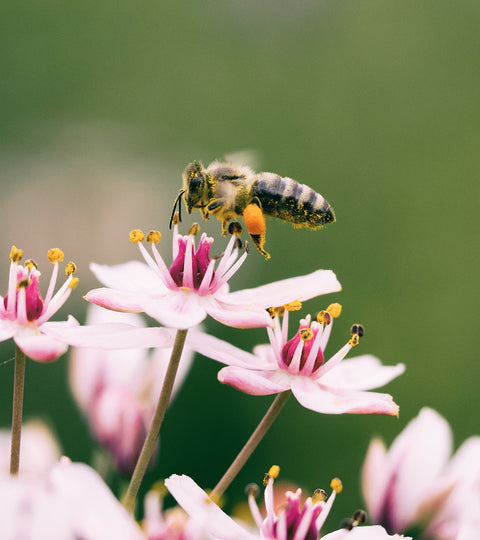MOTHER EARTH IS THE REAL QUEEN BEE.
Keystone (VIP) species like bees keep Mother Earth flourishing—literally. They pollinate 80% of the world’s plants, responsible for one out of every three bites on your plate. In the past 5 years, the bee population has dropped by 30%. And that number is up by 42% from just last year.
According to The Life of the Bee’s Maurice Maeterlinck, “if the bee disappeared off the face of the earth, man would only have four years left to live.” So, this Earth Day, we’re handing it off to our little pollinators by sharing five things you can do at home to help the bees.
SHOP WILD, SAVE THE BEES
And save the bees, save the world. We’re proud to partner with pollinator.org as a Bee-Friendly Farming partner, aka a "BFF.” Today and Friday, we’re offering BOGO Free with code EARTHDAY on all 6 packs. We’re also donating one additional dollar for every sale to pollinator.org to support their efforts to improve the health of bees, through conservation, education, and research.
BEE BARISTA
This has the be the cutest thing you can do to help. In the warmer, dryer months of summer, Bees are in danger of exhaustion. The y’re workaholics, pushing themselves so hard that they often don’t have enough energy to return to the hive. Put out a shallow dish of water with a couple of corks for them to rest on so they can stay hydrated and moving.
GO CHEMICAL-FREE
We kinda think you should already be doing this… but if you’re not, it’s time to purge your cabinets. Pesticides you use on your lawn and in your garden are a serious threat to bees. Try swapping out for organic and natural options.
GET BUZZED ON (LOCAL) HONEY
If BOGO free isn’t enough of an incentive—this mocktail should do the trick. It’s an anti-inflammatory and pairs perfectly with our CBD Oils. Just boil some fresh chopped ginger in 2 cups of water and while cooling, add in TBS of local honey. Then add mint, lemon juice, and orange juice.
BUY ORGANIC, LOCAL, AND SEASONAL PRODUCE
Clean, sustainable farming practices do not use toxic pesticides like conventional farming. Neonicotinoid pesticides (say that 10 times fast) are commonly used on corn and soy to coat the seeds of the plant, resulting in a fully grown plant that is 100% poison to pollinators like bees.
